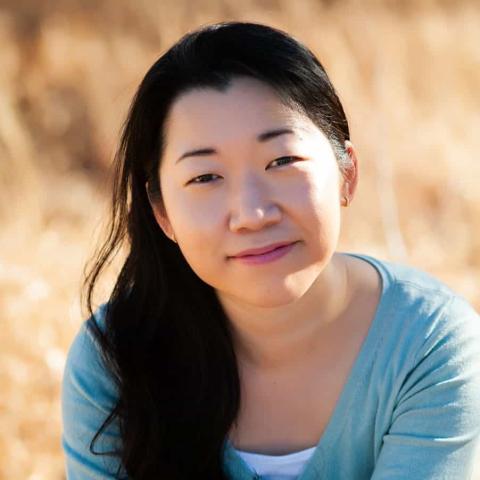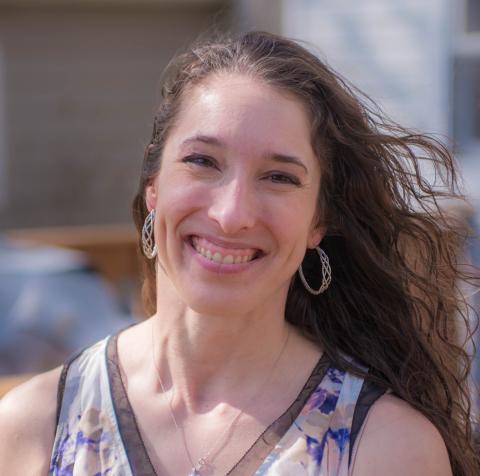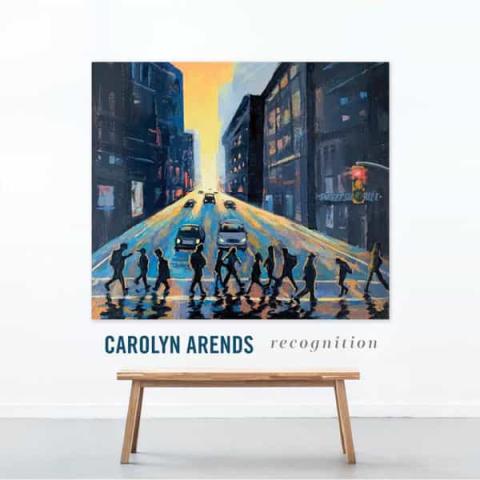At 11:50, Amy mentions a passage in My Name is Asher Lev about the "sitra achra," which Potok explains is the Other Side:
"… the Other Side, the realm of darkness and evil given life by God not out of His true desire but in the manner of one who reluctantly throws something over his shoulder to an enemy, thereby making it possible for God to punish the wicked who help the sitra achra and reward the righteous who subjugate it."
Chaim Potok, My Name is Asher Lev (New York: Anchor Books, 2003), Kindle Edition, 188.
At 16:37, Amy reads a quote about Asher's response to viewing Michelangelo's Pietà:
"I was an observant Jew, yet that block of stone moved through me like a cry, like the call of seagulls over morning surf, like—like the echoing blasts of the shofar sounded by the Rebbe. I do not mean to blaspheme. My frames of reference have been formed by the life I have lived. I do not know how a devout Christian reacts to that Pietà. I was only able to relate it to elements in my own lived past. … When I came back out into that brightness of the crowded square, I was astonished to discover that my eyes were wet." (309,310)
At 17:35, Amy mentions a quote about Asher painting his visible street many times and then he needs to paint the street that can't be seen, namely himself:
This passage is found on p 322.
At 23:22, Amy tells us that Chaim Potok had said this novel (and the final painting of the novel) were not well-received within his community. You can read what Potok says about it at the following link (about 3/4 of the way down the page):
https://spu.edu/depts/uc/response/aut97/features/potok.html
At 25:40, Amy and I discuss how his mentor tries to persuade him not to pursue his artistic gifting:
"Do you have any idea at all what you are getting into?"
"No."
"Become a carpenter. Become a shoemaker."
I was quiet.
"Become a street cleaner."
I did not respond. (193)
At 26:07, Amy mentions Asher's response when art gallery owner Anna Scheiffer talks to him about his faith and art and also tries to discourage him from pursuing art:
"I believe it is man's task to make life holy. I believe—"
"Asher Lev," she said softly, "Asher Lev."
"Yes?"
"Asher Lev, you are entering the wrong world," she said.
I was quiet.
"Asher Lev, this world will destroy you. Art is not for people who want to make the world holy. …" (209)
At 26:07, I bring up Asher asking his mentor, Jacob Kahn, why he thinks that Asher's father hates Asher. Here is a snippet of that conversation:
"Why does he hate me? I don't understand."
"He thinks you are wasting your life. He thinks you have betrayed him. … You and your father are two different natures. …
"The Rebbe isn't angry. Why isn't the Rebbe angry?"
"The Rebbe is a very wise man. And he is of a different nature than your father."
"I don't understand."
"Do not try to understand. Become a great artist. That is the only way to justify what you are doing to everyone's life." (277)
At 28:49, Jonathan Rogers talks about viewing stories in terms of having a desire, choice, and consequences model. More information can be found at this link:
https://rabbitroom.com/2011/01/desire-choice-consequence-building-character-through-stories/
At 30:38, I talk about the painting that is the predecessor to the final painting of the novel. Here I quote Asher's thoughts on this:
"It would have made it easier to leave future work incomplete. It would have made it more and more difficult to draw upon that additional aching surge of effort that is always the difference between integrity and deceit in a created work." (328)
At 39:04, Amy discusses Asher's recognition about his responsibility with his artistic gifting and quotes:
"Asher Lev, Hasid. Asher Lev, painter. I looked at my right hand, the hand with which I painted. There was power in that hand. Power to create and destroy. Power to bring pleasure and pain. Power to amuse and horrify. There was in that hand the demonic and the divine at one and the same time. The demonic and the divine were two aspects of the same force. Creation was demonic and divine. Creativity was demonic and divine. Art was demonic and divine. … I was demonic and divine. Asher Lev, son of Aryeh and Rivkey Lev, was the child of the Master of the Universe and the Other Side. Asher Lev paints good pictures and hurts people he loves. … Paint the anguish of all the world. Let people see the pain. But create your own molds and your own play of forms for the pain. We must give a balance to the universe." (367)
At 41:24, Amy mentions a poem by Anne Porter where she talks about a transcendent moment and the need to be able to voice things in an altogether different language. Here is a link to her poem, "An Altogether Different Language":
https://www.poetryfoundation.org/poems/49720/an-altogether-different-language
At 44:08, Amy brings up the quote that Jacob says to Asher about the importance of knowing the world in which you are entering:
"This is the world you want to make sacred. You had better learn it well first before you begin." (228)
At 45:53, Amy talks about our world of brokenness and God asking us to enter into it and engage as broken people with broken people, "right behind the footsteps of our Savior, who became human for our sakes. Who entered into the world, and, no, he did not become like the world, but He was definitely in it." Here is supporting scripture from Phillipians 2:5-8 (Biblegateway.com):
"In your relationships with one another, have the same mindset as Christ Jesus:
Who, being in very nature God,
did not consider equality with God something to be used to his own advantage;
rather, he made himself nothing
by taking the very nature of a servant,
being made in human likeness.
And being found in appearance as a man,
he humbled himself
by becoming obedient to death—
even death on a cross!"
At 47:11, Amy talks about doing "the work of [our] vocation" and giving the world "a refined offering of love," which opens us up to the world and doing what Tolkein said is "exposing our hearts to be shot at." Here is Tokein's quote (as found on GoodReads):
"I am dreading the publication, for it will be impossible not to mind what is said. I have exposed my heart to be shot at."
J.R.R. Tolkien, The Letters of J.R.R. Tolkien (New York: William Morrow, 2014), 172.
At 47:55, Amy quotes Tish Harrison Warren on writing:
"Writing always involves risk. We and our work will receive criticism and critique, which is a good, albeit painful, and essential part of getting at the truth and also of becoming a better writer. But in this moment in history, to state anything at all can unleash not just needed response but vitriol that is unreasonable and ad hominem (and, at times, massive and viral).
"To write lovingly will inevitably entail, with its many joys, some wounds, some suffering. If writing is to be an act of love, we will have to extend tolerance and charity to our critics, even those who attack us unfairly. If we seek to be faithful as Christian writers and leaders, we will be criticized in stereo—on the Right and the Left—and, at times, those in either direction will seek to co-opt our work for their own ends. Living and writing in this place of tension takes practice. We hone our craft. We learn in time and in community, through patient silence, listening, and prayer, to name the world truthfully, to herald our message, clearly and humbly."
Timothy Keller, John Inazu, Uncommon Ground: Living Faithfully in a World of Difference (Nashville: Thomas Nelson, 2020), 84.
At 52:06, I mention C.S. Lewis's The Horse and His Boy. The part I was speaking of involves a lion wounding Aravis, Shasta's female companion on his journey. (144) A little bit later, the lion and Shasta have a conversation. In this snippet, Shasta begins:
"Then it was you who wounded Aravis?"
"It was I."
"But what for?"
"Child," said the Voice, "I am telling you your story, not hers. I tell no one any story but his own." (165)
C.S. Lewis, The Horse and His Boy (New York: HarperCollins Publishers, 1982), 144, 165.
At 53:47, Amy mentions reading another novel by Chaim Potok, where the main character does something without being conscious of doing it:
This novel is Davita's Harp.
At 1:01:02, I mention a repeated refrain of Asher's father:
Four times in the novel, Asher's father talks about not being able to "reconcile myself" to Asher's artistic gifting and his use of it.
Chaim Potok, My Name is Asher Lev (New York: Anchor Books, 2003), Kindle Edition, 58, 196.
At 1:02:45, I mention that the Rebbe gave his family three choices concerning his father's vocational options.
These are found on pp 148 and 149.
At 1:04:10, Amy discusses a conversation that the mashpia and Asher have about Asher's gift and how this is a good example of the responsibility of our calling.
"Asherel, you have a gift. The gift causes you to think only of yourself and your own feelings. No one would care if these were normal times, Asherel. We do not interpret the second commandment the way others do. But these are not normal times."
"When have times ever been normal for Jews? I thought. What is he telling me? To stifle the gift? Does he also believe the gift is from the Other Side? Then it should be stifled even in normal times; what does it have to do with the Jewish people? And if it's not from the Other Side, if it's from the Ribbono Shel Olom, why is it less important than what Papa is doing?" (133)
At 1:05:53, Amy points out that Jacob Kahn tells Asher he puts too much love into his art and that can lead to sentimentality, which will lead to the death of his art.
This is found on p 215.
At 1:07:11, I mention a quote from Asher where he compares his love of art to his father's love of travel:
"My world of aesthetics was as bewildering to him as his insatiable need for travel was to me." (305)



